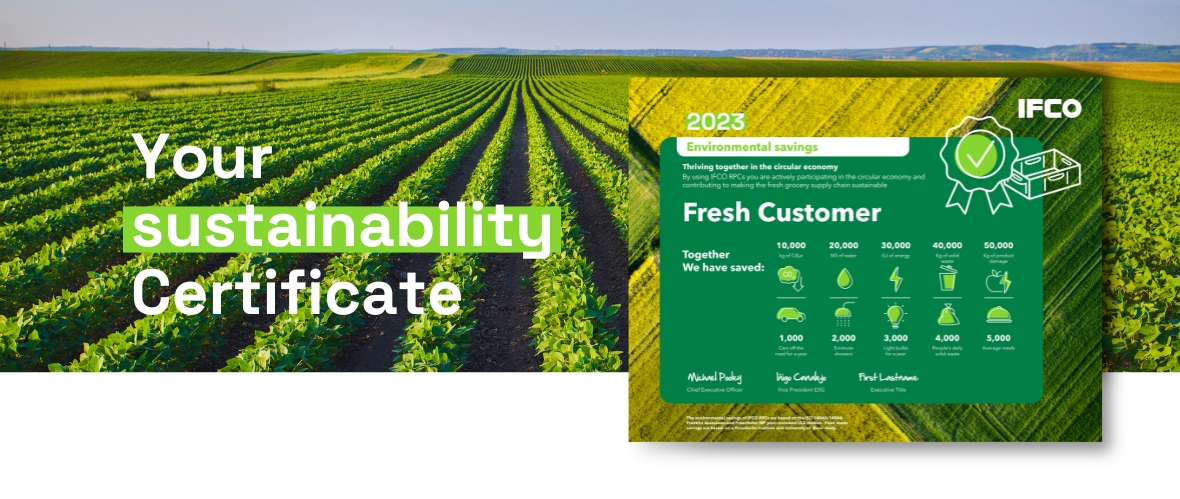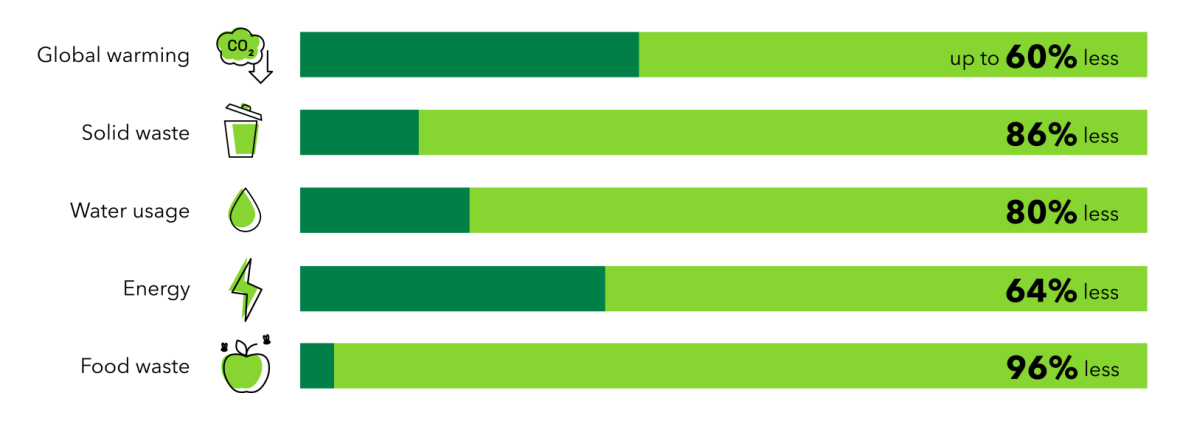Every year, we award IFCO Sustainability Certificates to our customers to confirm the amount of CO₂e, water, energy, solid waste and food waste they have contributed to avoiding over the year by using the IFCO SmartCycle circular pooling system and IFCO Reusable Packaging Containers (RPCs).

These savings you see aren’t just finger-in-the-air numbers. Third-party, peer-reviewed Life Cycle Assessment (LCA) studies and separate food waste studies have scientifically quantified the environmental benefits of the IFCO SmartCycle and our RPCs. These studies provide comprehensive data on the cradle-to-grave environmental savings achieved through switching from single-use packaging to IFCO RPCs and the IFCO SmartCycle circular pooling system.
Essentially, the environmental benefits are achieved as IFCO RPCs are reused up to 120 times, repaired when damaged and, when no longer repairable, granulated to be closed-loop recycled into new IFCO RPCs at the end of their long service life. This unique circular model has recently received the prestigious Cradle to Cradle Certified® Silver recertification for the European Lift Lock RPCs.
In addition, the unique IFCO SmartCycle pooling system is professionally managed through high-tech, resource-efficient Service Centers, which supports producers, suppliers, distributors and retailers in achieving their ambitious sustainability goals and reducing the overall environmental footprint of their supply chains.
The IFCO Sustainability Certificate helps you to scientifically underline the positive impact of using IFCO RPCs in your fresh grocery supply chain. Highlight the environmental savings in your ESG reports and share the certificate with your employees, customers and other stakeholders.
Switching to IFCO Reusable Packaging Containers (RPCs) reduces the environmental impact of your supply chain: less waste, more environmental savings.


We’re constantly monitoring the environmental benefits generated by the IFCO SmartCycle so that we can understand our impact – and help our customers to understand theirs. We’re pleased that our total environmental savings have improved as we’ve made significant progress with our ESG (Environmental, Social, Governance) 2025 strategy, as set out in our IFCO ESG 2023 Report.
In addition, we have officially committed to setting carbon reduction targets in line with science. By 2040, we intend to become a Net Zero business. The key decarbonization levers and milestones are outlined in detail in our IFCO Roadmap to Net Zero. What’s more, the Science Based Targets initiative, an independent body, validated IFCO’s near-term science-based targets (SBTs) for 2031, confirming that the company’s goals for reducing greenhouse gas (GHG) emissions align with a 1.5-degree scenario, as recommended by the Intergovernmental Panel on Climate Change (IPCC).
By using our unique IFCO SmartCycle closed-loop pooling system and IFCO RPCs, our customers are part of the circular economy and achieve significant environmental savings with our support.